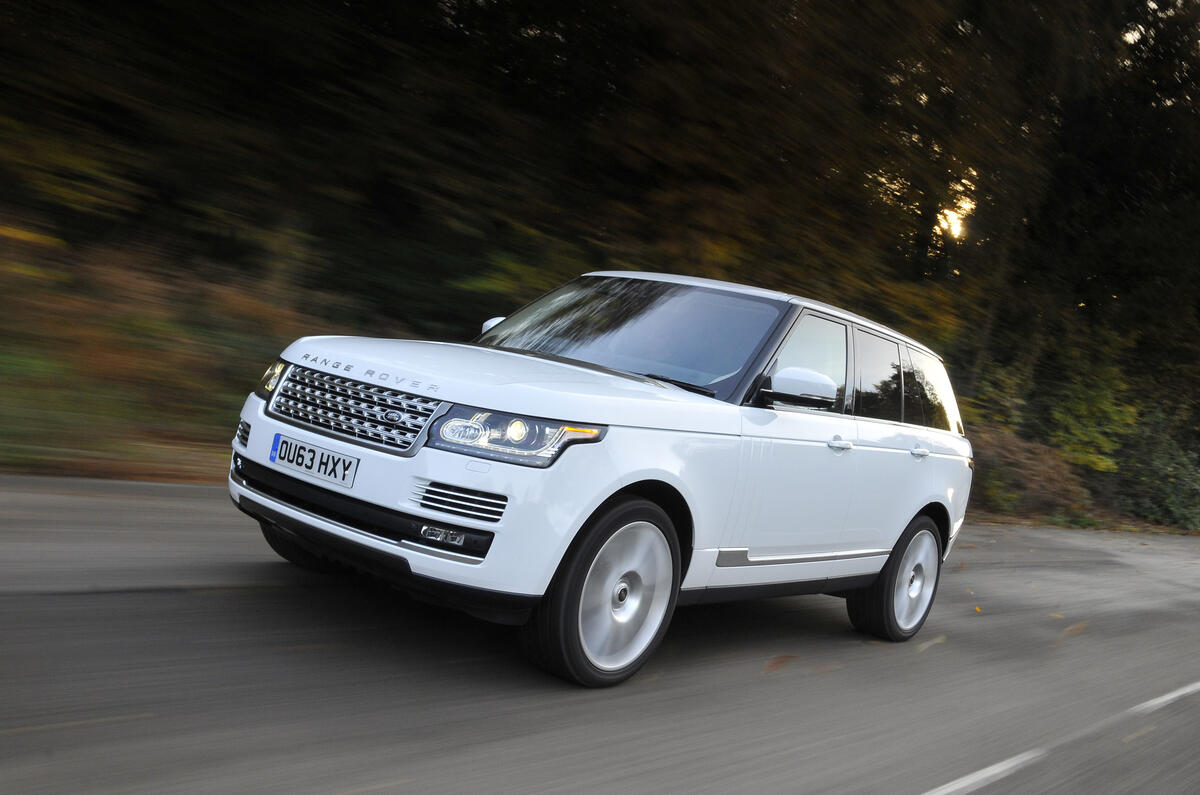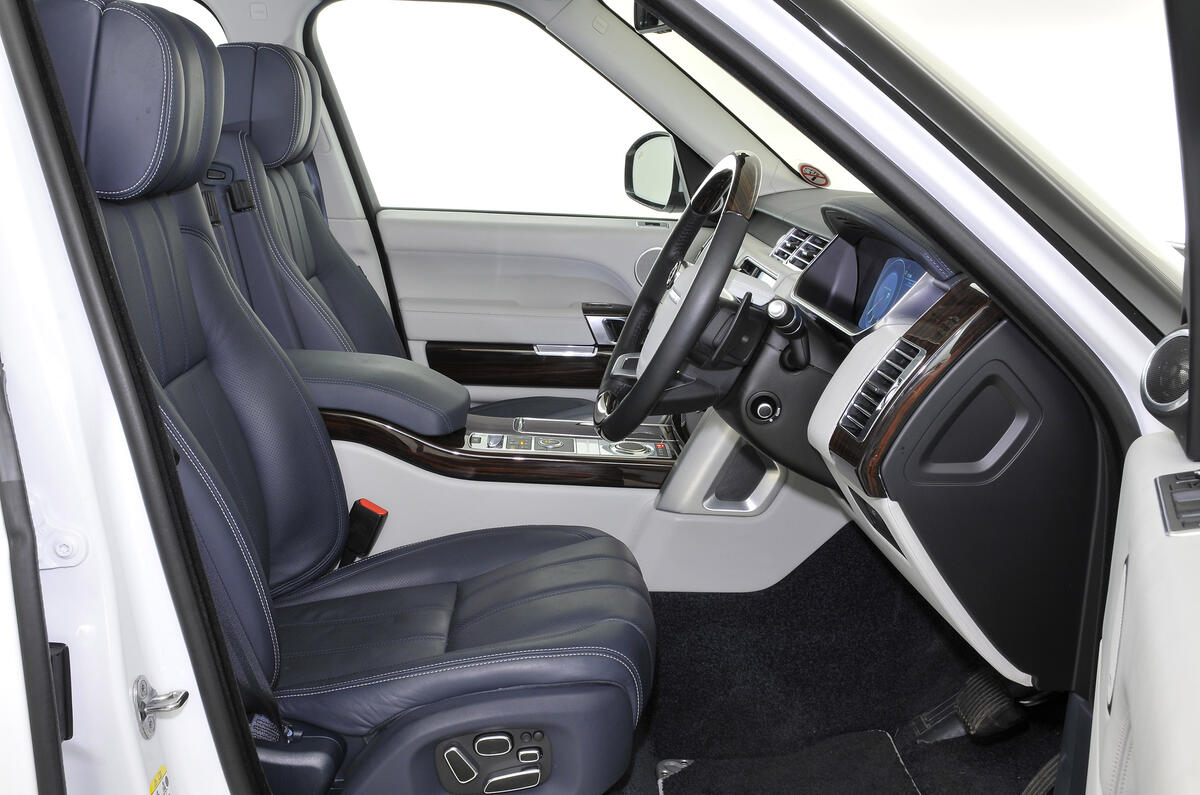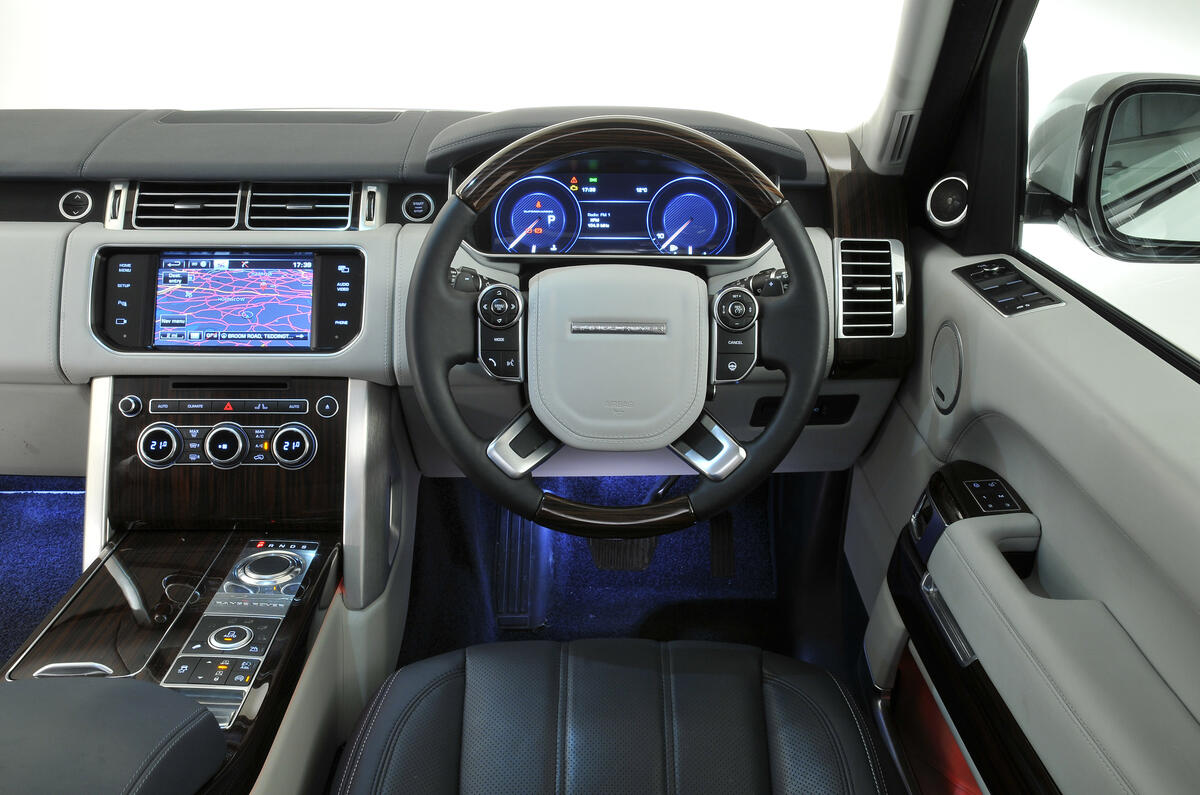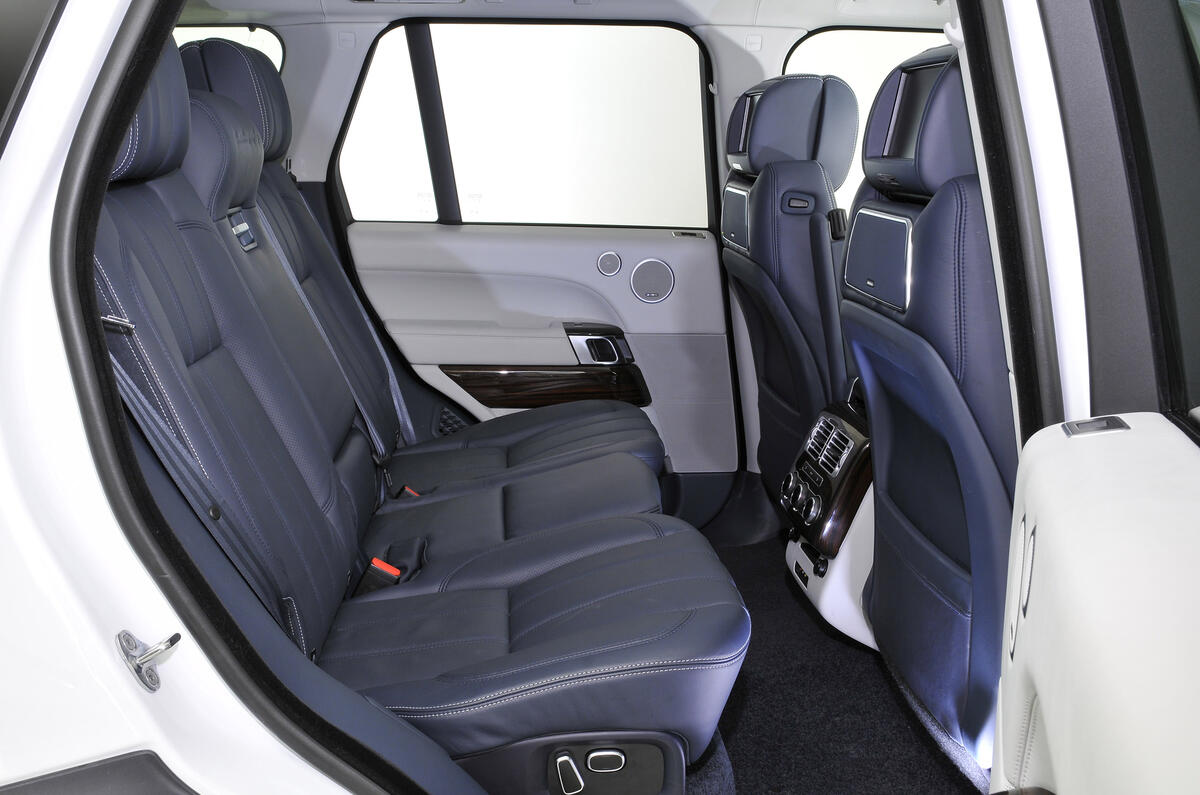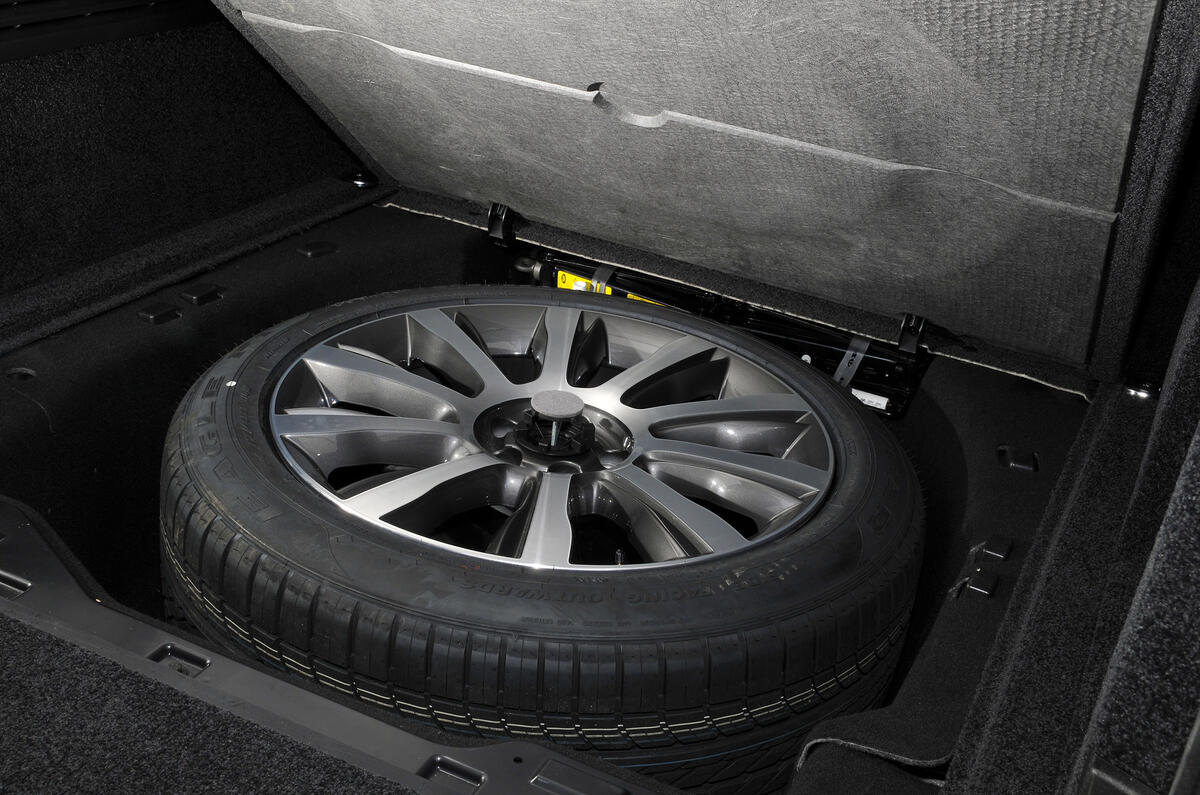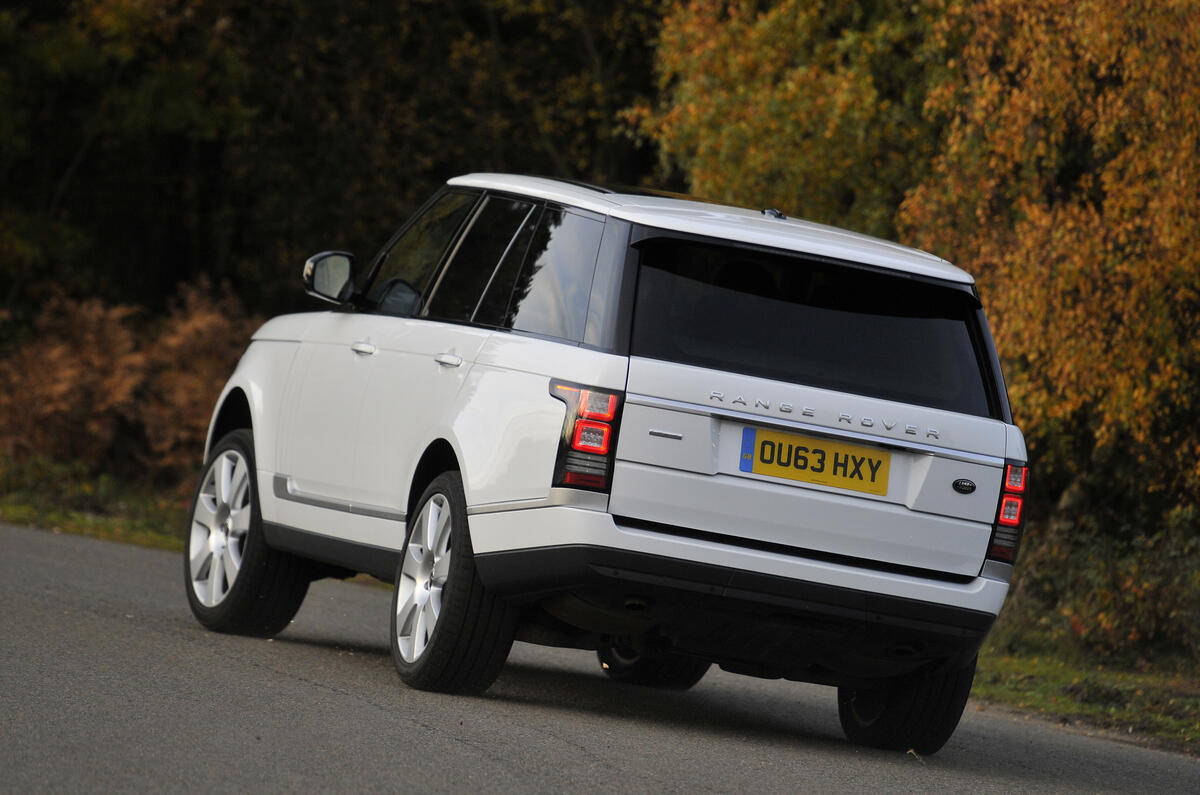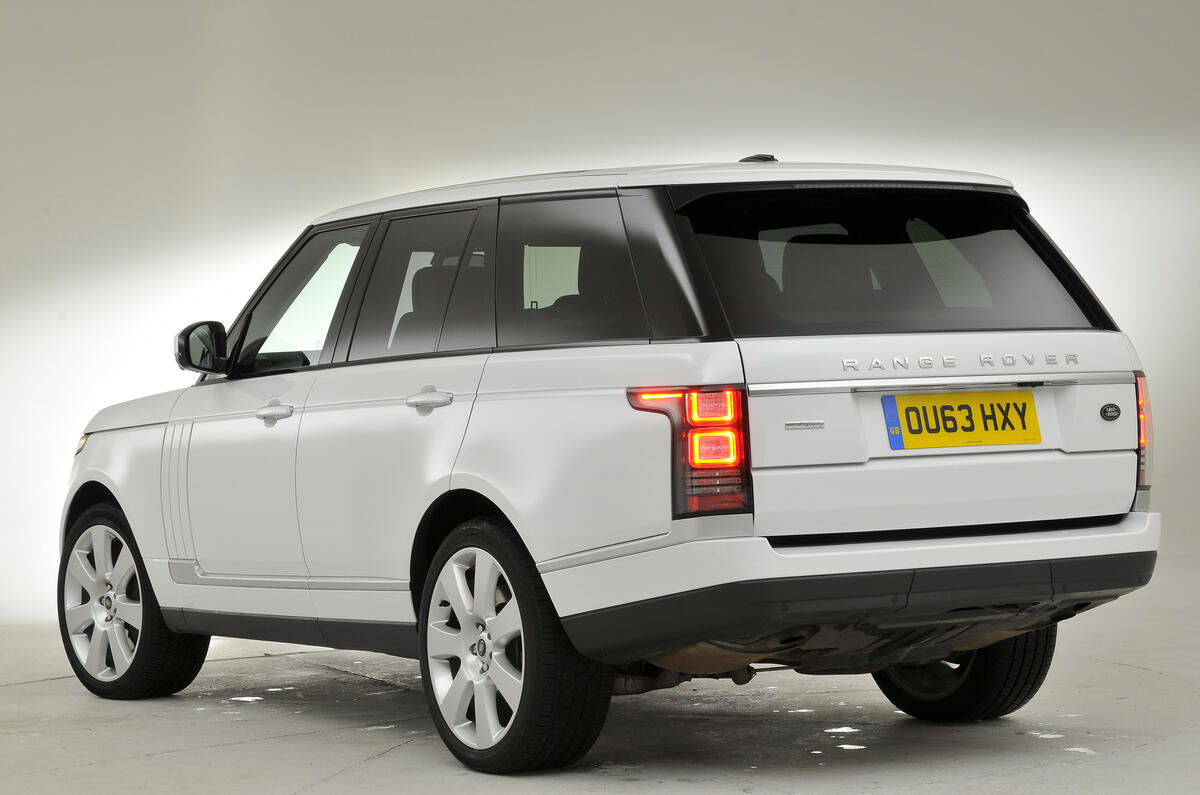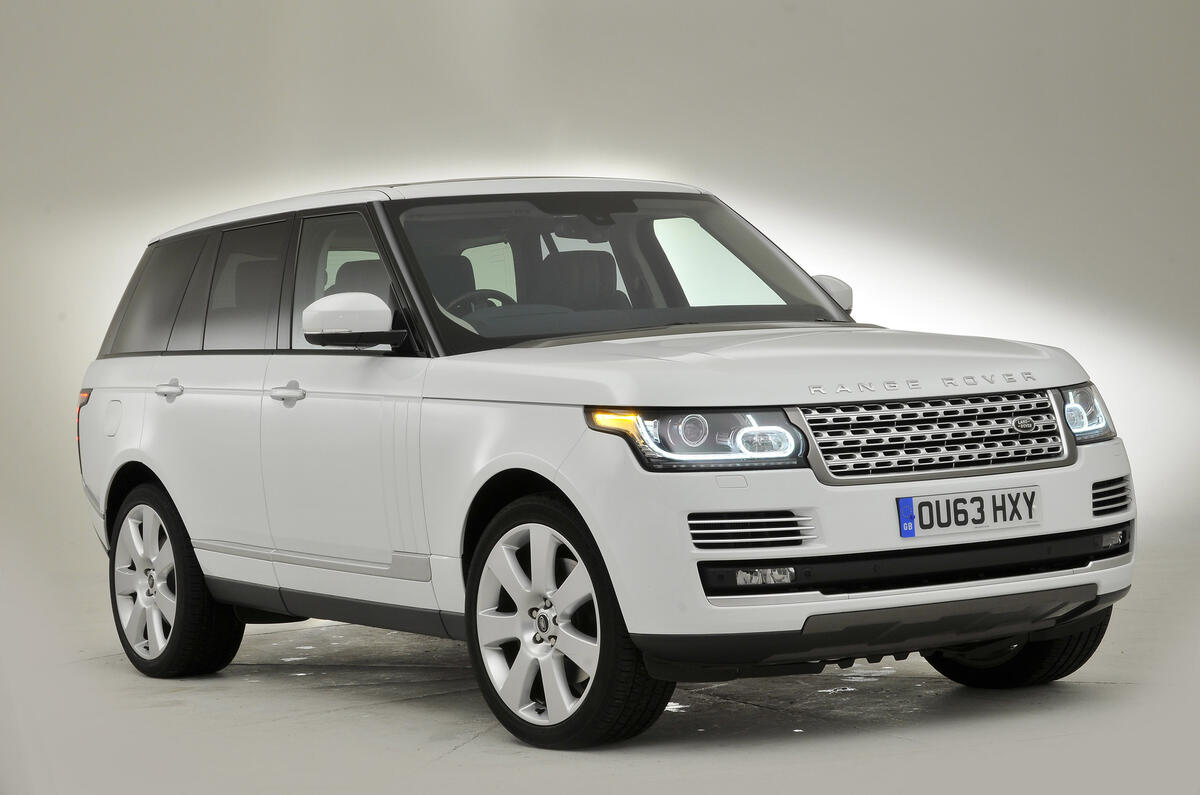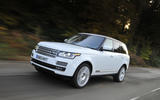Land Rover claims that the SDV8 Range Rover is capable of hitting 60mph from rest in 6.5sec. Shorn of a few options, plus the extra occupant and full tank of fuel with which we performance test our cars, we don’t doubt it would manage it. Even hampered by that ballast, the 7.0sec our test car wanted to reach 60mph felt like a pretty impressive result. That would have left most hot hatches for dust less than a decade ago.
Fine, too, is the response of the 4.4-litre V8. It settles to a muted idle – there is clearly some serious soundproofing going on here – and the eight-speed ZF automatic gearbox encourages it to spin at very low revs. It generates ample torque, with some 516lb ft available from as little as 1750rpm, allowing measured acceleration and easy cruising.
Ask more of it, perhaps by turning the rotary gear selector to S, and the engine becomes more audible - but no less refined. We can’t think of a situation in which you’d reasonably ask for more performance than it can deliver. Should you want the engine to spin entirely at your behest, the gearbox will, wherever possible, obey instructions sent via the wheel-mounted paddles – unlike, say, the recalcitrant seven-speed unit in a Mercedes. Prod past the kickdown point and the ’box will still select a lower ratio and change up by itself at the limit, but we have no qualms about that in a car such as this.
It's the mighty 5.0-litre V8 that gives the Range Rover the kind of performance that not that long ago we'd only expect from the likes of a BMW M5, propelling the car to 60mph in 5.4sec. 503bhp and the speed it endows the Range Rover with is well matched to the car's surprising agility. Obviously, if that isn't enough grunt than the SVAutobiography models may cater for you with its 542bhp 5.0-litre V8 borrowed from the Range Rover Sport SVR.



